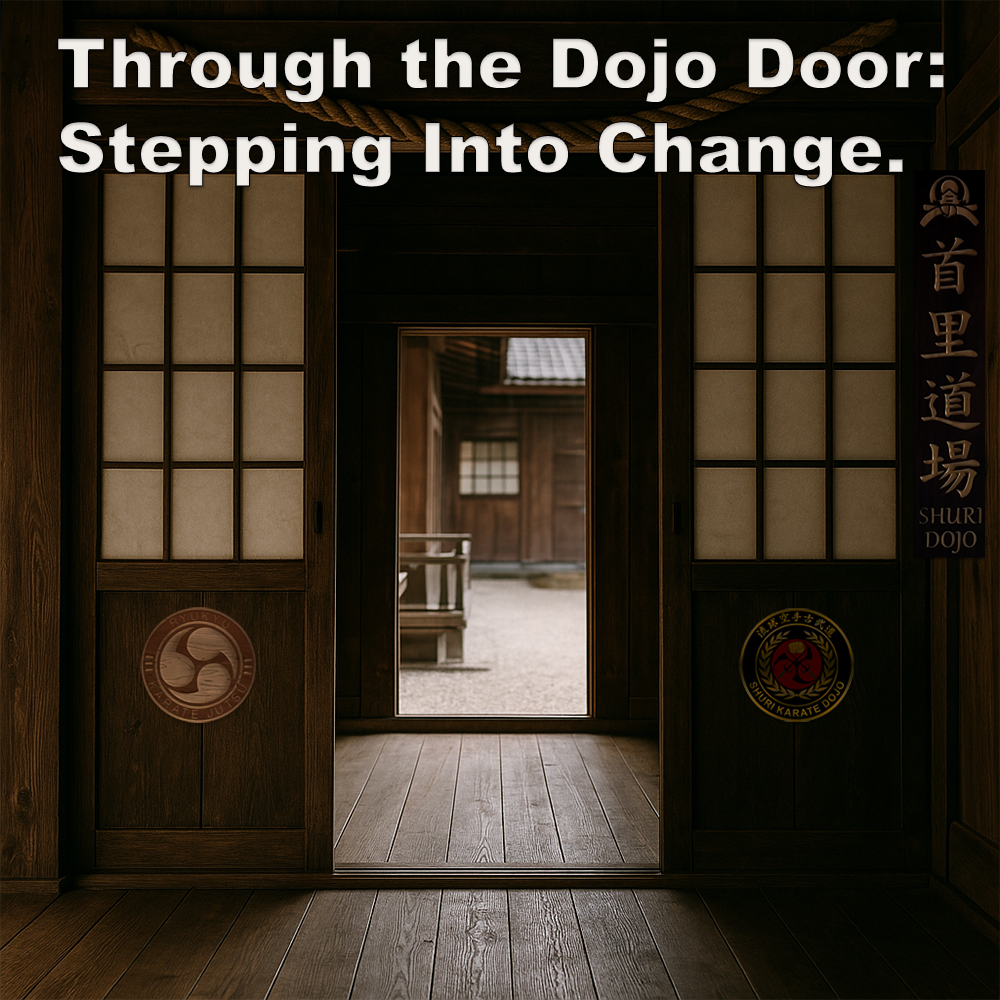
(Approx 1 minute 40 second read)
Change. Even the word makes some karateka open their mouths in horror, as if you’ve insulted their family or spat on their dojo floor.
.
People resist change because they believe they will lose something of value, or fear they will not be able to adapt to new ways. Their comfort zone is truly that; comfortable.
.
We’ve become so attached to the way things are done, we’ve forgotten to ask if the way things are done still makes sense. For over a hundred years, karate has been stripped down, polished, labelled, and sold in parts. Basics, kata, kumite. Named techniques. Levels and grades. That’s karate now. Why would anyone want to change that?
.
Well, let’s ask the harder question – Why don’t we? And what’s the cost of never doing so?
.
Why do we treat karate as something fixed, when it came from change and adaptation?
.
Why does tradition so often get mistaken for permanence?
.
Why do people hear “change” and assume it means throwing away the past?
.
And here’s the real problem – if we don’t question, we don’t understand. If we don’t understand, we repeat. And if we just repeat, all we’re doing is going through the motions. That might be fine for some, but it’s not what karate was built on.
.
The irony is, the old masters were the ones who changed things. They adapted, experimented, built kata from experience, refined ideas through contact. They didn’t think in terms of, “Is this traditional?” They thought in terms of, “Does this work?”
.
But we’ve inherited their end product, not their process. And in doing so, we’ve turned what was once a living system into a rigid one.
.
Change doesn’t mean abandoning the past – it means understanding it well enough to know what was essential, and what was circumstantial. It means daring to look beyond what you were taught and asking, “Is there more?”
.
Some people will never ask that question. They’re content with the karate they know. That’s fine. But others… others feel that itch. They see that something isn’t quite right. That maybe – just maybe – there’s more than just repeating a block, punch, and kick for the next 30 years.
.
This is for them.
.
Change the way you see things and the things you see will change.
.
.
Written by Adam Carter
